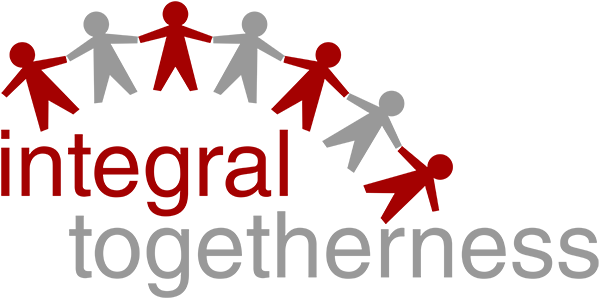Home › Why Integral Togetherness? › Making collective intelligence a daily practice
Making collective intelligence a daily practice
Making collective intelligence a daily practice
A possible definition of collective intelligence is the capacity of people in a team, group or organisation, to share knowledge, to think and act in a way aligned and coordinated to achieve effective results.
In other words, collective intelligence means that 1 + 1 = 3.
In the same way that hydrogen and oxygen combine to form the third entity “water”, collective intelligence tranforms separate individuals into a coherent group and creates a team within which the whole is greater than the sum of the parts.
There are many groups and teams that have little collective intelligence. Interaction itself does not necessarily create collective intelligence. Look around us!
To succeed in creating collective intelligence, several necessary conditions and competences have been identified. To mention just a few: a shared sense/identity/purpose, open communication with the scope to speak freely, mutual confidence, a commitment to something larger than oneself, curiousity, enough security to allow for debate …
At the same time, it is possible to identify several types or stages of collective intelligence.
Since the earliest times, people have looked for ways to survive and to live together. Spiral Dynamics and other models show us how different types of collective intelligence develop in many human communities according to their living conditions.
Jean-François Noubel, a practitioner and researcher on collective intelligence, lists three major types of collective intelligence: original, pyramidal and global collective intelligence.
Integral Togetherness, thanks to the approaches and tools of its coaching team and its background of working with large groups, can help you make a successful transition or more generally to implement collective intelligence in your team or your organisation.
The coach is not a superior being who is stronger or more competent than the staff of the organisations he or she works with; nor does he or she become an external leader who compensates for the mistakes and failings of the internal leaders.
The coach helps people and systems to discover and apply their own solutions. We are guided by the Open Forum definition of a facilitator. According to Harisson Owen, creator of this approach, the facilitator should “ideally be fully present and completely invisible”.
So where are you and where is your organisation in terms of collective intelligence? Here are some questions to underline the point:
– What already works well in terms of collective intelligence in your organisation?
– Are the benefits of collective intelligence evident in your organisation?
– Have you identified some key competences of collective intelligence?
– Are these competences developed in your organisations?
– Have you identified steps to concretely improve collective intelligence in your organisation?

